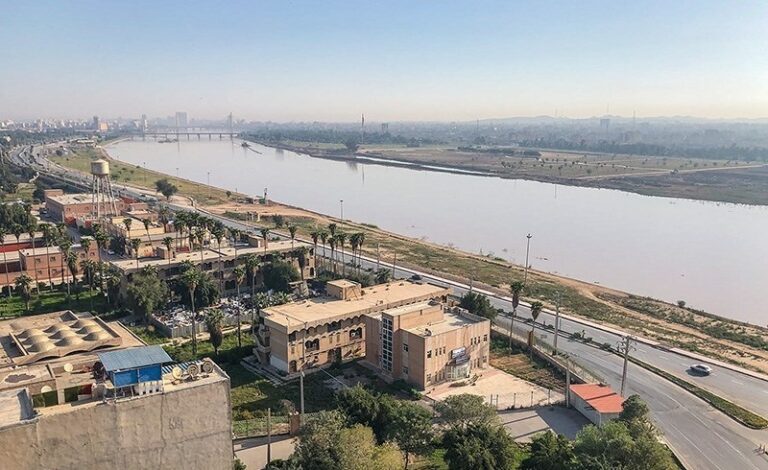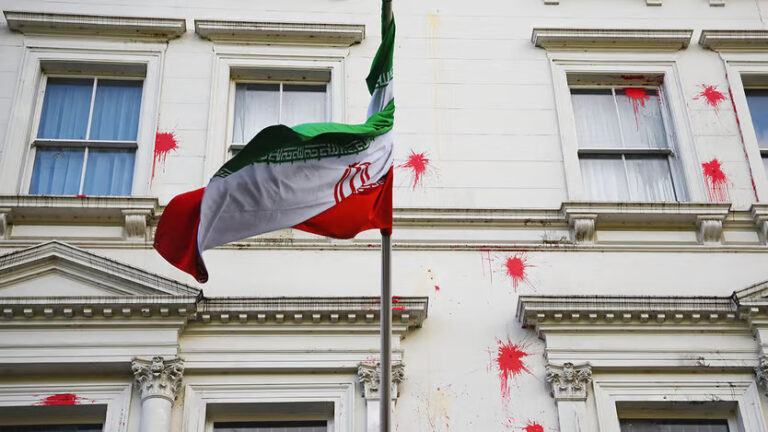MUNA SHIKAKI, Al Arabiya Washington Bureau
President Barak Obama of the United States met Tuesday with Sheikh Mohammed bin Zayed al
Nahyan, Crown Prince of Abu Dhabi and Deputy Supreme Commander of the United Arab Emirates Armed Forces. The meeting, which was held in the Oval Office, was closed to the press. The White House released a vaguely worded statement afterward saying the meeting between the two leaders was productive and covered “wide-ranging discussion which focused on our common strategic interests in the region” and that it emphasized the importance of “continued close consultations” between the two countries.
The crown prince also met earlier with homeland security adviser Janet Napolitano and defense secretary Robert Gates to discuss military and security cooperation.
According to the official Emirati news agency, the leaders “discussed the strong and broad-based relationship that unites the two countries, and pledged to continue the close cooperation in the areas of security and commercial activity.”
The meeting comes after National Security Adviser Tom Donilon’s April 13 consultations with the crown prince in Abu Dhabi and at a time when the two countries are not in agreement on several regional issues, principally Iran.
“I think having heard unsatisfactory answers from defense secretary Robert Gates and Centcom commander Gen. James Mattis, the crown prince has come here to try and convince the president himself of what he thinks should be done in regards to Iran,” said Simon Henderson, a regional expert at the Washington Institute for Middle East Policy, referring to earlier meetings in the region.
“The UAE thinks that the US doesn’t take Iran seriously. From the UAE perspective Iran is the major problem in the region and it needs to be countered, whereas the US thinks that greater political freedoms are the issues to focus on,” he said.
The UAE and several Gulf countries also believe the US is applying a double standard in the region, calling on those governments to open up politically while not applying the same standard to Iran, and overlooking the protests that happened after the 2009 Iranian elections.
Gulf countries, including the UAE, were also shocked at how quickly the US abandoned its long time ally Hosni Mubarak during the Egyptian uprisings.
Differences over the UAE’s involvement in Bahrain are also a point of contention: The US would like to see the UAE and Saudi pull their troops out from the tiny island state, whereas the UAE’s anger over harsh criticism levied by the administration against the Bahraini government led to a delay in its military involvement in NATO strikes on Libya.
The UAE and Qatar are the only two Arab countries currently involved in the fighting. Their participation was central to the US’s desire to make the coalition more multilateral and to obtain Arab cover for their efforts.
At the same time the UAE is being criticized by human rights organizations based in the US for arresting civil society activists and cracking down on dissent in a country that does not face unrest.
But the despite the tensions, the two countries have very close ties which may not be threatened by the recent events, says David Mack, a former US ambassador who served in the UAE,
“They appreciate fact that we have close relationship with the Egyptian military, and that the UAE is one of the most important trade partners of the US in the Middle East,” Mr. Mack said.
But Iran remains a contentious topic.
“UAE leaders fear that this US administration is ready to live with a nuclear Iran,” Mr. Henderson said.
(Muna Shikaki is a correspondent for Al Arabiya in Washington, D.C. You can follow her on Twitter @munashik)









+ There are no comments
Add yours